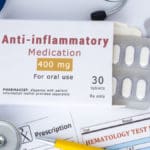Depression, like many other medical illnesses, can look different depending on who is affected and how. The term Vascular depression has been used to describe late-life depressive episodes in patients with clinical evidence of cerebrovascular disease. It often looks different from most mood disorders in that it especially affects the cognitive abilities like communication, focus, and memory. Patients with vascular depression are often unresponsive to typical depression treatments like antidepressant medications because of cognitive effects and age.
What Is Vascular Depression?
Vascular depression has unique characteristics that distinguishes it from other types of depression. The presenting features of vascular depression often involves poor motivation and slowed information processing as opposed to traditional mood complaints.
Vascular depression usually develops without a prior personal or familial history of mental illness or affective disorder. Vascular depression does not follow the path of clearly delineated episodes determined by clinically defined criteria in the way early-onset depressive disorders do. With vascular depression, the mood and cognitive symptoms seem to be persistent and less episodic. Recognition of vascular depression is often delayed, resulting in a failure to administer treatments to patients. Due to their older age, patients with vascular depression may have less understanding of their moods and may be unaware or uncomfortable with mental health services.
Vascular depression is usually diagnosed by Magnetic Resonance Imaging (MRI) or with clinical criteria. The criteria for MRI-defined vascular depression focuses on the presence and severity of cerebrovascular damage. The particular damage to look for in MRI’s are either deep white matter lesions, often referred to as white matter hyperintensities, or subcortical grey matter lesions.
Cognitive Effects of Vascular Depression
Vascular depression is often explained as a disorder of cognitive dysfunction, including difficulty with completing tasks, impaired concentration, lack of attention, slowed information processing, and difficulty making decisions. The impairment in these critical cognitive functions may increase the likelihood of irritable mood swings and social withdrawal. These cognitive symptoms are often the catalyst for a clinical evaluation rather than the depressive symptoms.
Because cognitive symptoms are already more common in older adults, these patients and their families may be more comfortable during the assessment process with discussing problems with attention, concentration, reasoning, and memory. Moreover, an awareness of the type of cognitive effects associated with vascular depression can help increase social engagement and understand some of the struggles that patients may be experiencing.
Treating Vascular Depression with TMS
An article published in a 2018 issue of American Journal of Psychiatry summarizes various treatment options for Vascular depression. Vascular depression increases the likelihood of poor response to antidepressant medications and may contribute to poor self-management of medications and greater impairments in daily function. Sleep hygiene is important; low-dose melatonin can be helpful for insomnia.
Management should include active support for patients to reduce obesity, hypertension, hyperlipidemia, and glucose intolerance and to engage in appropriate dietary and exercise strategies to reduce risk of further vascular damage.
As discussed in this article, Transcranial magnetic stimulation (TMS) can be a particularly appropriate treatment option patients with refractory vascular depression. One 2008 study examined TMS for patients with vascular depression found that patients who were previously unresponsive to antidepressant medications experienced significant improvement in depressive symptoms with TMS treatment. About 40% of these patients who has been unresponsive to antidepressant medications and were treated with active TMS had a significantly beneficial response to TMS in this study.
Treat Vascular Depression at Mid City TMS
TMS therapy has shown positive results amongst patients with many kinds of depression, including vascular depression. TMS is particularly helpful for executive functioning and enhances cognition, so it is a particularly appropriate treatment option for vascular depression. Mid City TMS offers expert and compassionate care from a dedicated team, extended hours, state-of-the-art technology, and comprehensive, individualized care in collaboration with your treatment providers. Contact Mid City TMS today to talk with one of our healthcare experts about TMS treatment benefits.



